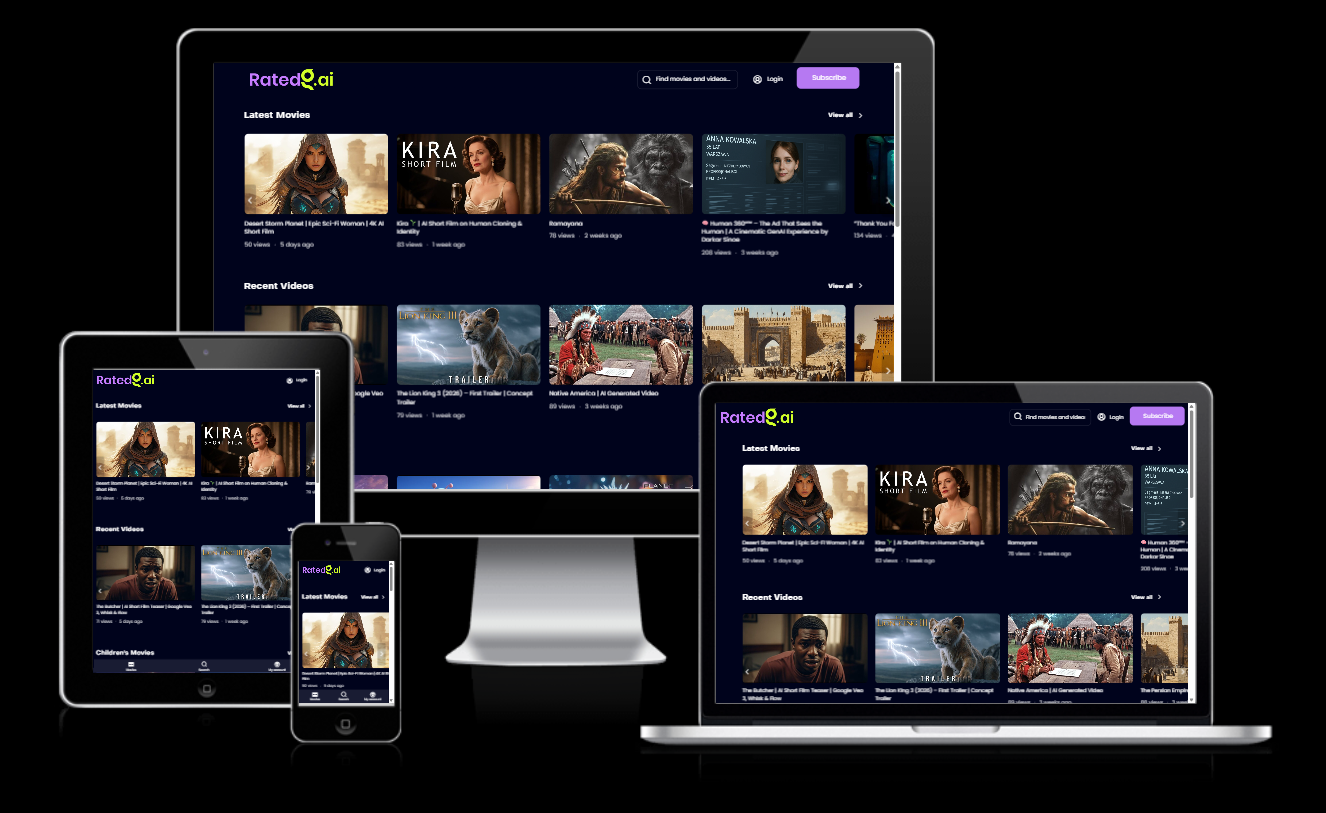The Case for AI Films: RatedG.ai Leads A New Era of Storytelling
AI is reshaping creative industries, with filmmaking emerging as one of the most intriguing frontiers. The idea of ‘AI films’, movies written, designed, or even produced with the help of AI is gaining momentum. This shift can be seen in the exponential growth of the new AI Films platform, RatedG.ai launched by Cyber Gear.
The case for AI films is not about replacing directors, writers, or actors but about reimagining what storytelling can be when humans and machines collaborate.
Cinema has always been a medium of boundless imagination, but even the most visionary filmmakers are constrained by budgets, time, and technical limitations. AI can break these barriers. From generating hyper-realistic visual effects to creating entire fantasy worlds, AI tools can amplify creative possibilities without exhausting resources.
For instance, AI-powered platforms can generate background environments, creatures, or even characters at a fraction of the cost of traditional CGI. This means indie filmmakers with limited budgets can achieve visuals that once required the resources of major studios. The democratization of filmmaking could lead to an explosion of diverse voices and stories that were previously sidelined.
AI’s role in filmmaking is not limited to visual effects. Scriptwriting, editing, and even soundtrack composition are being transformed. Natural language models can draft screenplay ideas, suggest dialogue improvements, or help with plot development. Editing suites enhanced with AI can analyze raw footage, identify the best shots, and assemble rough cuts automatically.
These efficiencies shorten production timelines, enabling filmmakers to experiment more, iterate faster, and ultimately produce higher-quality content. For audiences, this means a greater variety of films and more innovative storytelling methods.
One of the most compelling arguments for AI films lies in personalization. Traditional cinema delivers a one-size-fits-all story, but AI opens the possibility of adaptive films that change based on the viewer’s preferences. Imagine a movie where the ending adjusts depending on the viewer’s emotional responses or where the protagonist’s decisions shift according to real-time audience input.
Such hyper-personalized storytelling could revolutionize not only entertainment but also education, training, and even therapy. AI films could provide immersive simulations for learners, therapeutic narratives for patients, or customizable experiences for gamers and cinephiles alike.
The case for AI films is, at its heart, the case for human creativity enhanced by machine intelligence. Rather than fearing this transformation, the film industry has an opportunity to harness AI to tell stories that are more diverse, accessible, and compelling. In doing so, it can ensure that cinema remains a living, evolving art form for generations to come.



